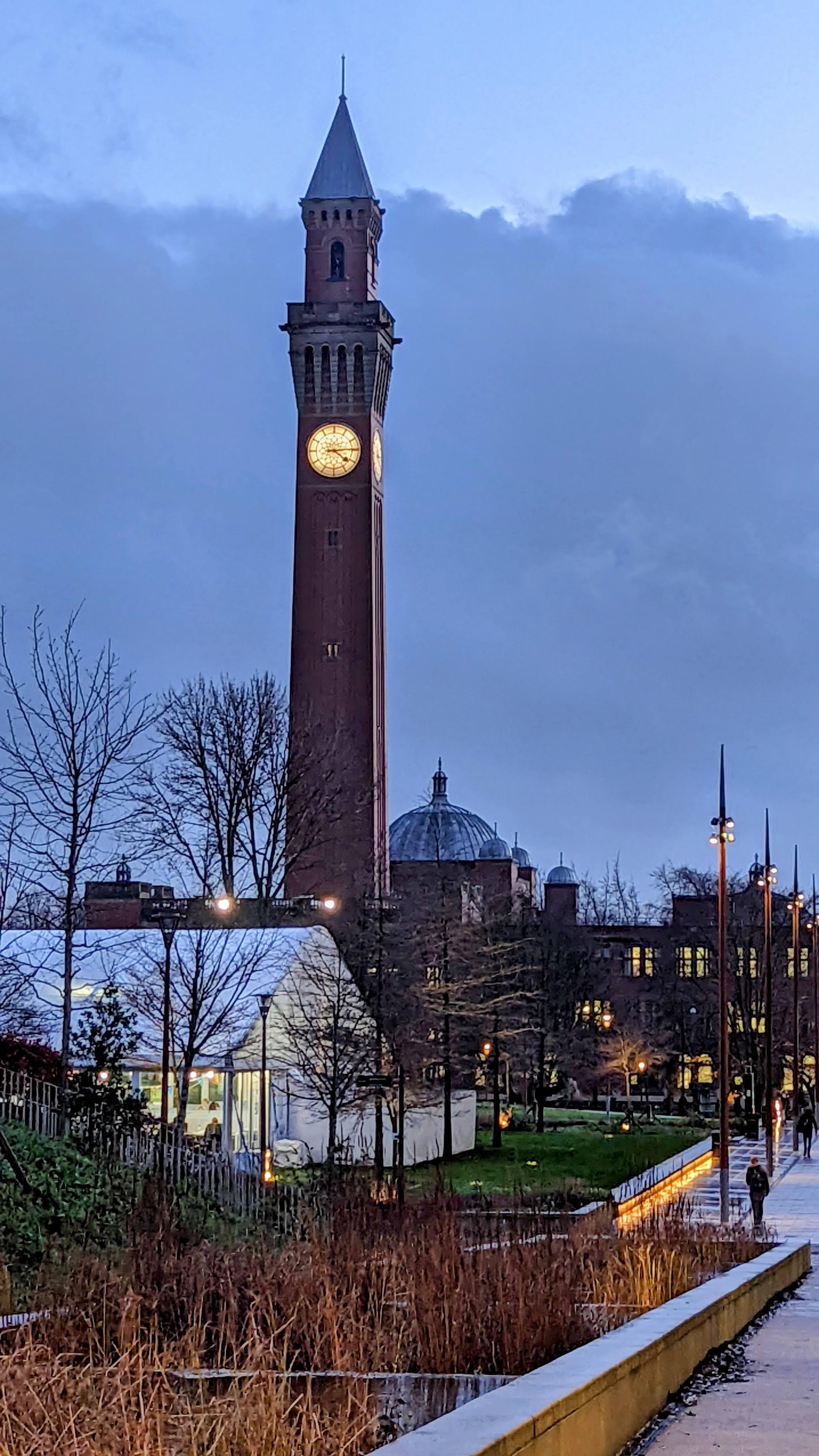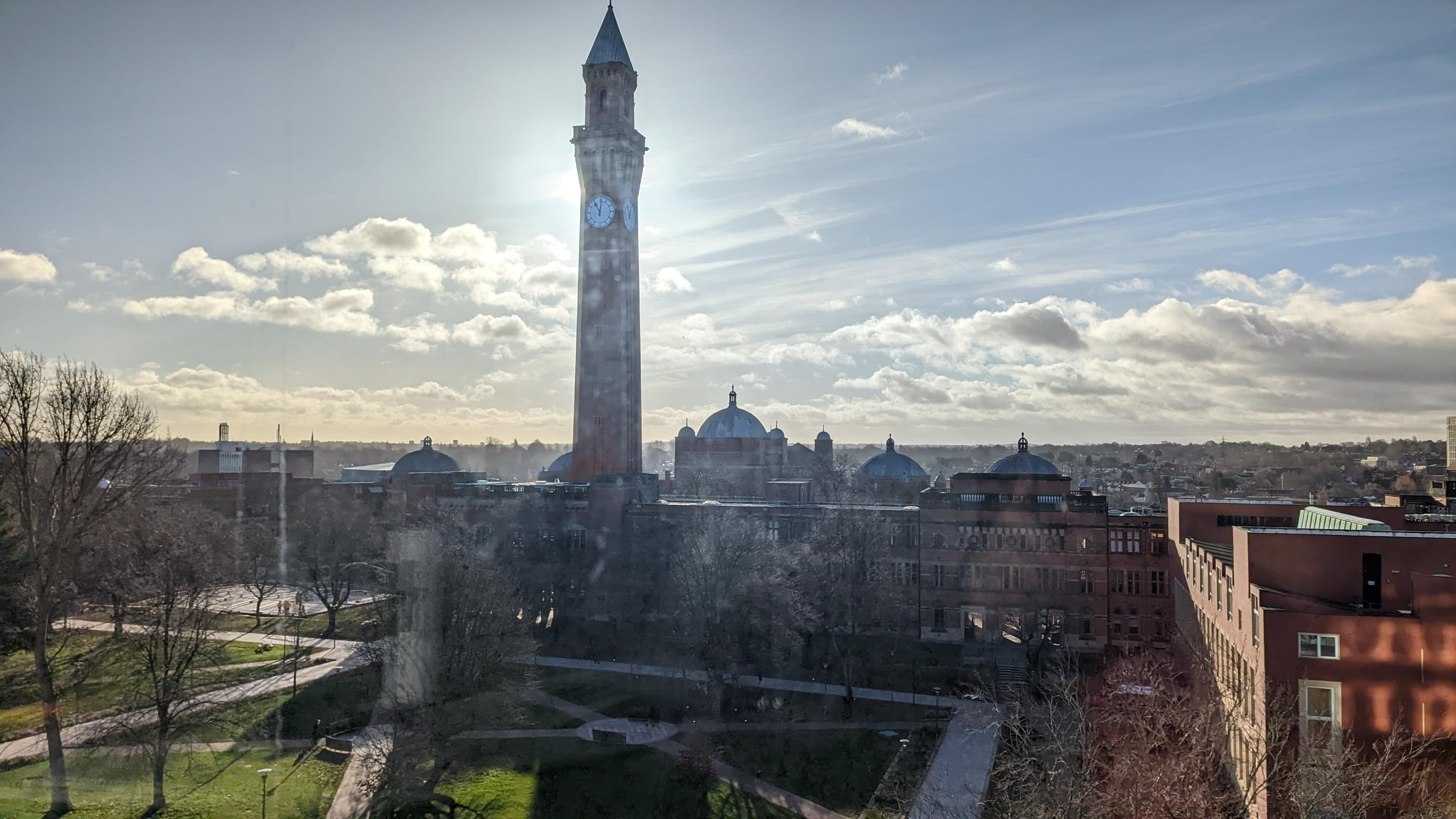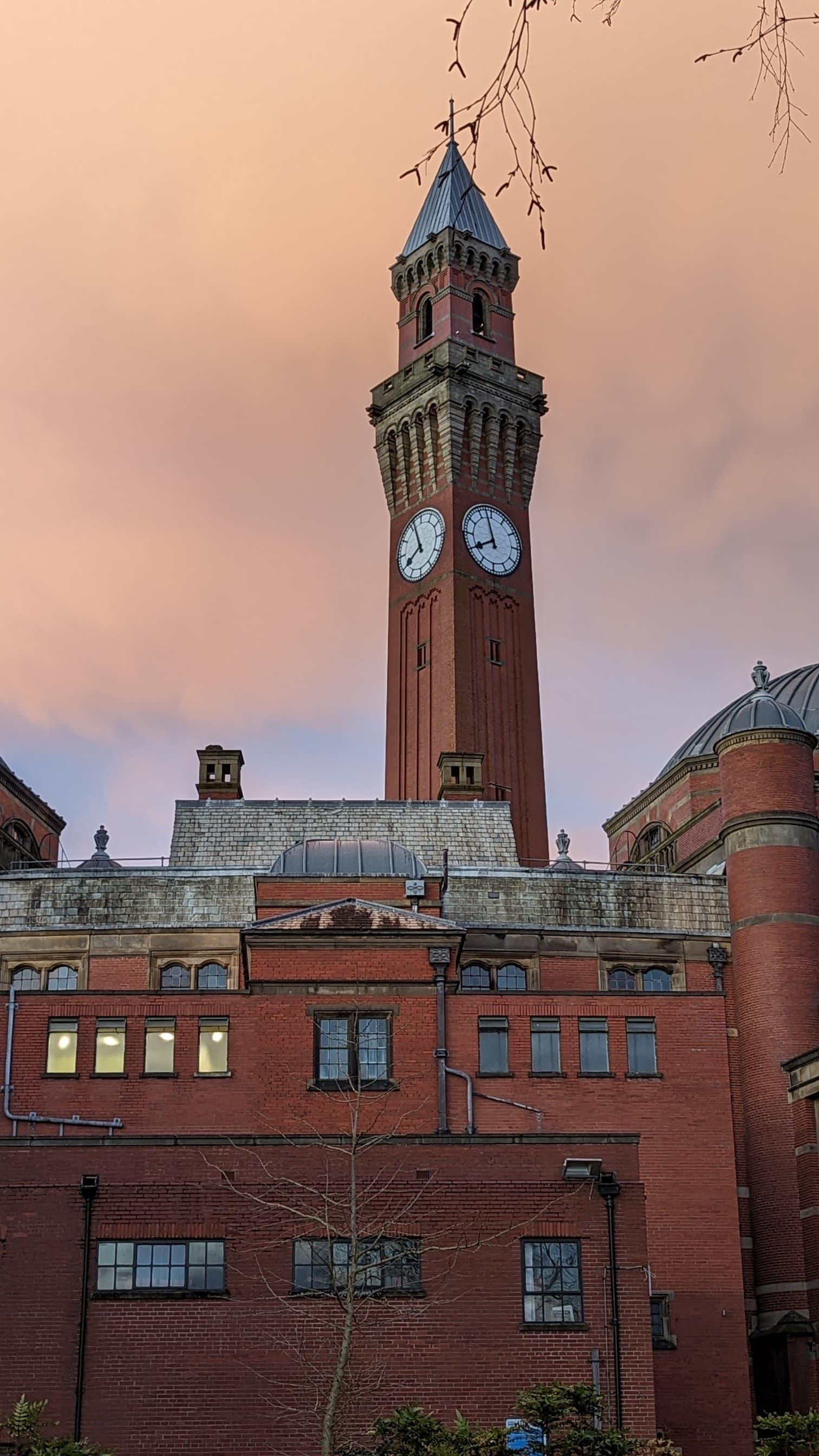What Students Say
Likes
- The research facilities, laboratories, library and access to study material were excellent.
- The access to extra-curricular activities, students groups and societies.
- Industrial collaboration with companies and access to career portals/placement cells.
Dislikes
- Administration could be better and more efficient.
- The coursework was not upto the mark.
- The amount of students in a class, ie the tutor to student ratio for a masters degree was off.
Course Curriculum
- My course is an individual research project which is a collaboration between the University of Birmingham and BASF SE (a German Chemical company). All of it is based on actual experiments in the laboratory. It is a 4-year project based mostly in the University but I spend 2 months every year in Germany working with at the Industrial R&D center of the company.
- The positive aspects of the project is the hands on research training and experience, I develop novel technology and publish research papers, most importantly unlike other PhD programs, I also work directly with an Industry wherein I apply my research to make real world Formulations which are used by consumers.
- My research is based on designing Microplastic-free environment friendly microcapsules for formulations.
- I have an industrial and an academic supervisor who guide me during my experiments. I admire both of them because of their knowledge and expertise in the research area and the support they have provided throughout, helping me understand difficult concepts when I am stuck, suggesting experiments I should do from time to time but also giving me the freedom and encouragement to develop an independent research strategy.
- Supervisors are known to help their PhD students find a job when they finish but it is not mandatory. Furthermore, since my course is direct collaboration with the industry, the companies tend to absorb the candidate after they finish their projects.
Admission Experience
- I am a PhD student. Applied to over 70 PhD positions across Europe. Rather than Universities I was applying to specific PhD positions looking at research groups and Professors which aligned with my research area.
- I was accepted only from my University (University of Birmingham)
- I appeared for 3 other PhD interviews and was rejected because my research experience was not enough or did not align with the project that I applied for.
- I only got accepted into my college. A bachelor's degree equivalent to the UK system (2:1 honors) and an IELTS (or TOEFL) as an English language test were the eligibility criteria. However, since this was a PhD position, my prior research experience in the same field was the most important criteria. The overall admission experience was similar to a job application, I had to write a cover letter and send a CV first to get shortlisted, then I appeared for 2 interviews, one was an informal one (stage 1) and the second was a formal one (stage 2) wherein I had to deliver a 20 min presentation about my research work with 10 min of Q and A.
- The Intake for the PhD positions happen year round and is based on the time when PhD positions get available, but normally for my cohort which is The Formulation Engineering Centre for Doctoral Training, new PhD positions are released in December/January and the projects begin around September/October.
- My admission process totally took around 5 months, I applied for the position in August 2020, my initial interview took place in September 2020, the second Interview was in October 2020 and I was notified about my selection on the same day as my second interview. Then visa documentation took three months and I got my visa in January 2021, my first day of work was 1st February 2021.
Faculty
- I was the only Indian student in my cohort. In the past few years 4 more Indian students began their PhDs in the same program. Since each project is Individual, every student has their supervisor.
- The number of phd students a supervisor has depends on individual research groups. This ranges from anything between 4-15 students on an average. Since all the course is project based there is no classroom teaching involved, although we have to take some lectures for credits but that is very small part.
- More or less its about the supervisor-research student ratio. I.e. if a supervisor has many research students he cannot give a lot of time for each project. If people are applying for PhDs I would personally prefer a group with not more than 7-8 fellow PhD students.
Campus Life
- We have just one big campus in Edgbaston, Birmingham. The extra curriculars and socials are amazing at the campus. There are literally 100s of clubs which you can be a part of based on your likes and hobbies ranging from sports, literature, hiking, archery, fencing to even Skydiving. I was a part of the Walking/Hiking group and my first year I literally traveled most of the UK countryside with them. Plus the concept of going to Uni in the UK is looked at more as an experience and therefore education is just a part of it and people give a lot of preference to extra curriculars.
- Also personally in my program we have a monthly social wherein the University takes us to different team building activities once every month and we explore things like bowling, ice skating, mini golf, breweries, gokarting, Christmas parties, lunches etc which are great to form a social bond and friendship with other PhD students.
Part Time Jobs
- TA/RA is a common thing PhDs can secure, typically every PhD student does it. 10-15 GBP/hr is the rate. 20 hours of work is allowed per week. It is usually easy for Phds to get these jobs since the Department needs help in managing Masters and undergrad students. Other on campus jobs include working as safety officers, University has open days wherein prospective students and their parents come and visit, overseas students work as volunteers during this time.
- Typically Indian students work in restaurants and cafes, subway, MacDonalds or at amazon warehouses and get paid about 10-15£/hr. I never needed to look for any part time jobs since I was getting paid full time so I don't have proper knowledge about this. It is difficult for PhD students to take time from their normal research and nobody does it because we get our proper full time salary.
Placement
- Most of the Engineering Doctorate students that have graduated get jobs within a year. Since PhDs level positions are a niche mostly students find jobs from the network they build during the 4 years of their PhD. Supervisors sometimes help. Formulation Engineering Doctorate has been running for 25 years now so we have big network of Alumni who also help. But with the UK in recession and new laws for Immigrants, getting jobs is becoming difficult as an overseas student.
- The usual grind of using LinkedIn, Glassdoor, Indeed.com for jobs applies and people have to apply to 100s before getting one. Major companies that hire Formulation engineers are Proctor and Gamble, Unilever, Croda, Mondelez, Johnson Matthey, GSK, AstraZeneca.
Accommodation
- Normally the student accommodations in the UK are very expensive. It is better to find something off campus. In the UK, some popular websites/apps to find accommodation include Spareroom (I used this one) and rightmove. Every university has a Facebook page for students that normally post accommodation ads. Also almost all the major towns in the UK have a Facebook page for Indians (eg. Indians in UK, Indians in Birmingham etc) which can sometimes help in finding accommodations.
- But for anyone looking for accommodation in UK I would suggest using Spareroom. Another thing is here most of the houses are handled by letting agencies which tend to be hard to work with (charge extra, lot of rules etc), I would try and look for accommodations who have a single landlord. Also, for the first six months stay within a 15-20 min walking distance from your University and look for accommodations who sign a contract for a short period (six months etc) so that if something goes wrong, you don't have to stay there for long. Another helpful tip would be to get in touch with previous students/seniors in your Uni (LinkedIn stalking is great for that) and ask for suggestions on areas which are best in your preferred city.
Exams
- Only an English exam is required for admission, so IELTS or TOEFL.
- For the application, you need to prepare a CV and a motivation letter/SOP highlighting why you are the perfect fit for the position. You also need to provide a List of Referees (at least 2), ideally past professors or research supervisors who can provide an LOR.
- The interview process is two stages, first stage is an informal interview talking about your expectations from the PhD and what your long term research goals are,what do you want to achieve out of the PhD etc. The second stage is a technical interview wherein you present your research experience in a 15-20 minute PowerPoint presentation followed by 15-20 minute QnA
Fees
- I had no fees, all my tuition fees were covered and I am getting paid a stipend every month. At the start I only had to pay for my visa and the Immigration health surcharge (health insurance) which was a total of INR 3 lakh for 5 years. But normally the fees are charged semester wise and range around £20000 annually.
- Average monthly expenses £1000
- £400-500 rent (including wifi, utility bills)
- £200 groceries
- £200 travel, eating out
- £100 gym membership, subscriptions for entertainment
Scholarship
- My entire course is fully funded and comes with a stipend of £25000 GBP annually. This funding is provided my the Engineering and Physical Science Research Council (EPSRC) and my industrial sponsors.
- All my colleagues accepted into PhD positions receive the same funding and stipend. Every year my program accepts 7-10 students out of which 2-3 can be international students.





